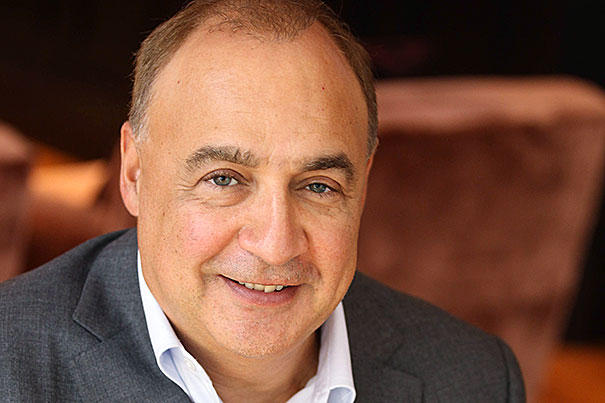
“By partnering with Harvard’s world-class biomedical research division, I am delighted to help accelerate the development of new therapies,” said Len Blavatnik in announcing the $50 million gift from the Blavatnik Family Foundation.
$50M gift from the Blavatnik Family Foundation
Blavatnik Biomedical Accelerator a catalyst to transform early-stage research
The Blavatnik Family Foundation, headed by Len Blavatnik, M.B.A. ’89, has donated $50 million to Harvard University. The gift will launch a major initiative to expedite the development of basic science discoveries into new breakthrough therapies for patients and cures for disease. The gift underpins Harvard’s growing commitment to creating an entrepreneurial culture in the life sciences.
Support for early-stage research and new inventions is vital to bridge the most challenging obstacle in university technology development, known as the “development gap” — the period of validating and building value around early-stage technologies, making them ripe for partnering with industry. The Blavatnik Biomedical Accelerator will identify early-stage, highly promising technologies, upgrade their value, and prepare them for licensing and commercial development.
The gift will also create the Blavatnik Fellowship in Life Science Entrepreneurship Program at Harvard Business School (HBS) to provide M.B.A. students with experience in life science entrepreneurship through exposure to the biomedical projects supported by the Accelerator.
Len Blavatnik, a longtime supporter of Harvard and a widely respected business leader, entrepreneur, and philanthropist, is well known for his interest and investments in the nexus between scientific innovation and business. Through the Blavatnik Family Foundation, he has supported leading educational, scientific, cultural, and charitable institutions throughout the world, including the University’s original 2007 Biomedical Accelerator Fund.
“By partnering with Harvard’s world-class biomedical research division, I am delighted to help accelerate the development of new therapies,” said Blavatnik. “Moreover, by increasing the collaborative efforts between Harvard Business School and Harvard’s scientific community, we will empower the next generation of life science entrepreneurs and provide a further catalyst for innovation and research development.”
In welcoming the $50 million gift, Harvard President Drew Faust highlighted Blavatnik’s commitment to innovation and transformational science. “Len Blavatnik’s passionate support of entrepreneurship and science as forces for progress reflects the forward-thinking leadership that will allow Harvard and others to develop promising new technologies that benefit society as a whole,” said Faust. “The Blavatnik Biomedical Accelerator and the integrated cross-university partnership it enables will advance the next great breakthroughs in biomedical technology, with its roots at Harvard.”
HBS Dean Nitin Nohria added, “By bringing together expertise and experience from across Harvard, the Accelerator and the HBS Fellows program will further enhance Harvard’s commitment to innovative research and entrepreneurship. With student interest in entrepreneurship at an all-time high and with the resources of the University’s Innovation Lab and HBS’s Arthur Rock Center for Entrepreneurship at the ready, we are well positioned to make the most of this generous gift from the Blavatnik Family Foundation.”
The Blavatnik Biomedical Accelerator will be operated within the University’s Office of Technology Development. It builds upon the success of the first Biomedical Accelerator Fund — created five years ago by Isaac T. Kohlberg, the University’s senior associate provost and chief technology development officer — which was also funded in part with support from the Blavatnik Family Foundation. The original Accelerator Fund has funded 37 projects, half of which are already advancing through alliances with biopharmaceutical partners or the creation of new companies. The expanded Accelerator program will focus particularly on therapeutic opportunities. It is structured to become self-sustaining, ensuring that over the long term, Harvard will remain at the forefront of life science research.
“The Blavatnik Biomedical Accelerator will enhance the value proposition of early-stage technologies and expedite the flow of Harvard inventions through key developmental milestones and into the marketplace,” said Kohlberg. “Some of the most important therapies and technologies in existence today originated from alliances between academia and the life sciences industry, and we look forward to many more in the years ahead.”




